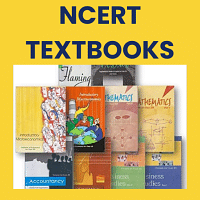Commerce Exam > Commerce Questions > What is the author's indirect comment on subj...
Start Learning for Free
What is the author's indirect comment on subjecting innocent animals to the willfulness of human beings ?
Verified Answer
What is the author's indirect comment on subjecting innocent animals t...
Through this story, the author had revealed how the human being has subjected innocent animals to cruel methods, torture, and death, fulfilling only their own whims and desire. The Maharaja's reckless killing of tigers had led to their extinction in many forests, but he was unaware of the serious consequences his foolish actions would lead to. To save his own life and lead a comfortable one, the Maharaja mercilessly drove a species of helpless animals to extinction to prove his authority and power over Nature and his own destiny.
 This question is part of UPSC exam. View all Commerce courses
This question is part of UPSC exam. View all Commerce courses
Most Upvoted Answer
What is the author's indirect comment on subjecting innocent animals t...
Introduction:
In the given passage, the author indirectly comments on subjecting innocent animals to the willfulness of human beings. The author suggests that such actions are unethical and morally wrong, highlighting the negative consequences inflicted upon animals due to human exploitation. Through the use of vivid descriptions and emotional language, the author creates a compelling argument against the mistreatment of animals.
Exploitation of Innocent Animals:
The author condemns the act of subjecting innocent animals to the willfulness of human beings. By using the word "innocent," the author emphasizes the vulnerability and helplessness of these animals, positioning them as victims of human dominance. This choice of language evokes a sense of sympathy and paints a negative image of humans exerting control over defenseless creatures.
Consequences of Human Exploitation:
The author suggests that subjecting animals to human willfulness has detrimental consequences. Through vivid descriptions, the author portrays the suffering and distress experienced by these innocent creatures. By employing emotional language such as "pain," "anguish," and "torment," the author appeals to the reader's empathy, evoking a sense of guilt and responsibility.
Moral and Ethical Implications:
The author implies that subjecting animals to human willfulness raises moral and ethical concerns. By referring to animals as "innocent" and contrasting them with human beings, the author highlights the inherent injustice in exploiting creatures that lack the ability to consent or defend themselves. This implies a violation of ethical principles, suggesting that humans should be more considerate and compassionate towards animals.
Conclusion:
In conclusion, the author indirectly comments on subjecting innocent animals to the willfulness of human beings, highlighting the negative consequences and moral implications of such actions. Through the use of vivid descriptions, emotional language, and appeals to empathy, the author aims to persuade the reader to reconsider their treatment of animals and advocate for more ethical and compassionate practices.
In the given passage, the author indirectly comments on subjecting innocent animals to the willfulness of human beings. The author suggests that such actions are unethical and morally wrong, highlighting the negative consequences inflicted upon animals due to human exploitation. Through the use of vivid descriptions and emotional language, the author creates a compelling argument against the mistreatment of animals.
Exploitation of Innocent Animals:
The author condemns the act of subjecting innocent animals to the willfulness of human beings. By using the word "innocent," the author emphasizes the vulnerability and helplessness of these animals, positioning them as victims of human dominance. This choice of language evokes a sense of sympathy and paints a negative image of humans exerting control over defenseless creatures.
Consequences of Human Exploitation:
The author suggests that subjecting animals to human willfulness has detrimental consequences. Through vivid descriptions, the author portrays the suffering and distress experienced by these innocent creatures. By employing emotional language such as "pain," "anguish," and "torment," the author appeals to the reader's empathy, evoking a sense of guilt and responsibility.
Moral and Ethical Implications:
The author implies that subjecting animals to human willfulness raises moral and ethical concerns. By referring to animals as "innocent" and contrasting them with human beings, the author highlights the inherent injustice in exploiting creatures that lack the ability to consent or defend themselves. This implies a violation of ethical principles, suggesting that humans should be more considerate and compassionate towards animals.
Conclusion:
In conclusion, the author indirectly comments on subjecting innocent animals to the willfulness of human beings, highlighting the negative consequences and moral implications of such actions. Through the use of vivid descriptions, emotional language, and appeals to empathy, the author aims to persuade the reader to reconsider their treatment of animals and advocate for more ethical and compassionate practices.
Attention Commerce Students!
To make sure you are not studying endlessly, EduRev has designed Commerce study material, with Structured Courses, Videos, & Test Series. Plus get personalized analysis, doubt solving and improvement plans to achieve a great score in Commerce.

|
Explore Courses for Commerce exam
|

|
Similar Commerce Doubts
What is the author's indirect comment on subjecting innocent animals to the willfulness of human beings ?
Question Description
What is the author's indirect comment on subjecting innocent animals to the willfulness of human beings ? for Commerce 2024 is part of Commerce preparation. The Question and answers have been prepared according to the Commerce exam syllabus. Information about What is the author's indirect comment on subjecting innocent animals to the willfulness of human beings ? covers all topics & solutions for Commerce 2024 Exam. Find important definitions, questions, meanings, examples, exercises and tests below for What is the author's indirect comment on subjecting innocent animals to the willfulness of human beings ?.
What is the author's indirect comment on subjecting innocent animals to the willfulness of human beings ? for Commerce 2024 is part of Commerce preparation. The Question and answers have been prepared according to the Commerce exam syllabus. Information about What is the author's indirect comment on subjecting innocent animals to the willfulness of human beings ? covers all topics & solutions for Commerce 2024 Exam. Find important definitions, questions, meanings, examples, exercises and tests below for What is the author's indirect comment on subjecting innocent animals to the willfulness of human beings ?.
Solutions for What is the author's indirect comment on subjecting innocent animals to the willfulness of human beings ? in English & in Hindi are available as part of our courses for Commerce.
Download more important topics, notes, lectures and mock test series for Commerce Exam by signing up for free.
Here you can find the meaning of What is the author's indirect comment on subjecting innocent animals to the willfulness of human beings ? defined & explained in the simplest way possible. Besides giving the explanation of
What is the author's indirect comment on subjecting innocent animals to the willfulness of human beings ?, a detailed solution for What is the author's indirect comment on subjecting innocent animals to the willfulness of human beings ? has been provided alongside types of What is the author's indirect comment on subjecting innocent animals to the willfulness of human beings ? theory, EduRev gives you an
ample number of questions to practice What is the author's indirect comment on subjecting innocent animals to the willfulness of human beings ? tests, examples and also practice Commerce tests.

|
Explore Courses for Commerce exam
|

|
Suggested Free Tests
Signup for Free!
Signup to see your scores go up within 7 days! Learn & Practice with 1000+ FREE Notes, Videos & Tests.

























